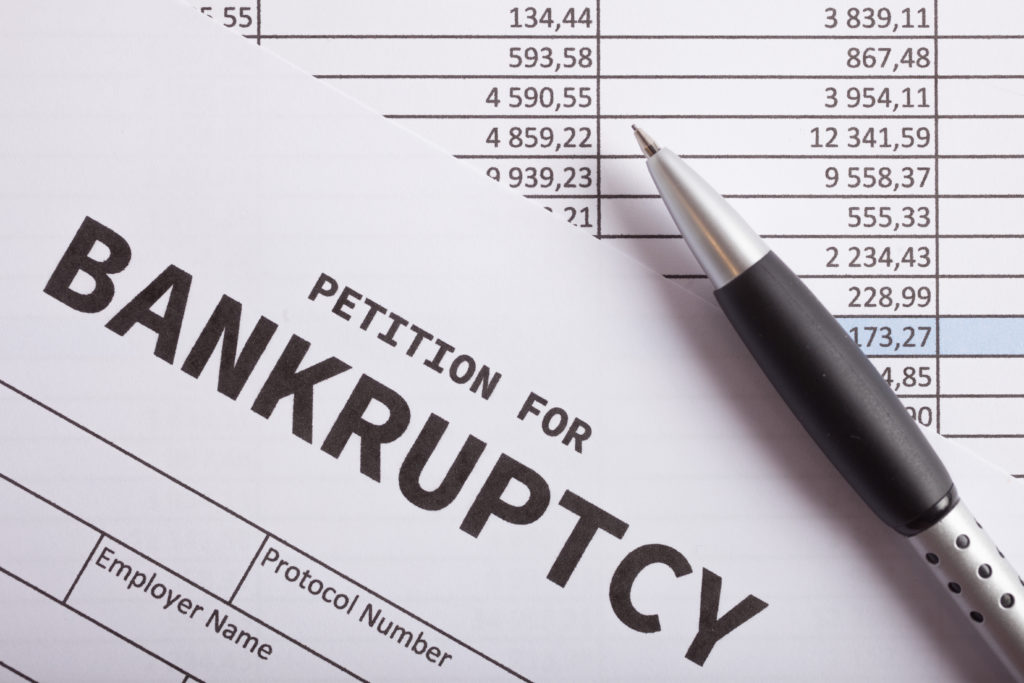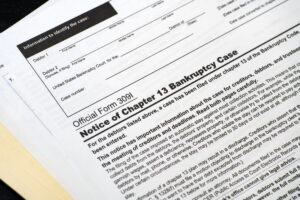
How To File Bankruptcy In Colorado
Wanting to learn about filing bankruptcy in Colorado? We can help. This article will provide a detailed roadmap of the bankruptcy process in Colorado. We have helped more than 1,000 clients file bankruptcy and can help you safely navigate the process.
What Is Bankruptcy?
Bankruptcy is a process that allows you to legally eliminate certain debts. Article I, Section 8 of United States Constitution authorizes Congress to enact “uniform Laws on the subject of Bankruptcies.” Congress consequently enacted several bankruptcy laws.
There are several different chapters of bankruptcy; however, individuals will typically file either Chapter 7 or Chapter 13 bankruptcy.
Filing Chapter 7 Bankruptcy In Colorado
Chapter 7 is the most common bankruptcy individuals will file in Colorado.
Typically, Chapter 7 lasts about four months from the time the case is filed with the bankruptcy court until the bankruptcy court closes the case.
Chapter 7 bankruptcy will eliminate most consumer debts, like credit cards, personal loans, repossessions, judgments for consumer debts, medical bills, and apartment leases.
You cannot eliminate certain debts with Chapter 7 bankruptcy, like child support or spousal maintenance (alimony), recent income taxes, student loans (for most people), and government fines, such as traffic tickets or restitution.
In order to file Chapter 7, the filer’s household income has to be within certain income limits.
The biggest potential landmine for people filing Chapter 7 bankruptcy in Colorado is that any assets that are more valuable than can be protected by the Colorado exemption rules will have to be turned over to the bankruptcy trustee. One of the reasons to hire an experienced Denver, Colorado bankruptcy attorney is to work with someone who will prepare you for any problems with keeping your assets.
Filing Chapter 13 Bankruptcy In Colorado
Filing Chapter 13 bankruptcy in Colorado is much different than filing Chapter 7.
Whereas a Chapter 7 bankruptcy usually lasts about four months, a Chapter 13 bankruptcy will last for a minimum of three years and a maximum of five years.
Most people file Chapter 13 bankruptcy because they are over the Chapter 7 limits. But Chapter 13 can also be beneficial in helping someone reorganize their debts if they have assets that are more than they can protect in Chapter 7 or if they have fallen behind on their home mortgage.
Chapter 13 bankruptcy involves the filer making a monthly payment to the Chapter 13 bankruptcy trustee to repay a portion of what they owe to unsecured creditors. I have had clients who have repaid 1% of what they owed to unsecured creditors, and I have had clients who have repaid 100%.
There are three primary factors that drive how much a Chapter 13 filer’s monthly plan payment will be. The first is what their disposable income is. That is calculated by deducting the total of their necessary expenses from their household income. The second factor is what debts they have. Certain debts, like mortgage arrears or back taxes, have to be paid in full over the course of the Chapter 13 plan period. The third primary factor is what assets they have. They can keep all of their assets in a Chapter 13, but if they would lose any in a Chapter 7, at a minimum, they have to pay their unsecured creditors the amount the creditors would get in a Chapter 7 bankruptcy.
The Chapter 13 bankruptcy process is fairly flexible. For example, if your income goes down, you may be able to reduce your monthly plan payment or even convert to Chapter 7 and stop making those monthly payments.
Filing Bankruptcy In Colorado
After you’ve had your initial consultation, you’ll need to start collecting information and documents about your income, assets, debts, and expenses. We’ll provide a worksheet that you can use as a roadmap for what you need to collect.
Once we get that information, we’ll prepare your petition. The petition is just the paperwork that has to be filed with the court when someone declares bankruptcy. The moment we upload your petition to the court’s website, all collection action has to stop. Garnishment has to stop. Foreclosure has to stop. Phone calls and emails have to stop.
The next step is the meeting with the trustee. This will be the only meeting that 99.9999% of people who file Chapter 7 or Chapter 13 bankruptcy in Colorado will have to go to. It’s a five to ten minute meeting with mostly yes and no questions. Before we even file your case, we’ll prepare you for that meeting.
If you’re filing Chapter 7, not much else happens after the trustee meeting. You’ll get your discharge order about 65 days after that meeting. That’s basically the order that tells the world that you’re no longer legally liable for your dischargeable debt. You’ll still be responsible for things like child support, certain taxes, and student loans.
If you’ve filed Chapter 13, you’ll continue to make your monthly payments for your three to five year repayment period and then get your discharge order.
Talk To An Experienced Denver, Colorado Bankruptcy Attorney About Filing Bankruptcy In Colorado
We offer free consultations to individuals who are dealing with overwhelming debt and are considering bankruptcy. During your consultation with an experienced Denver, Colorado bankruptcy attorney, you’ll hear about all of your options.
The easiest way to schedule an appointment at a time that is convenient for you is by going to our scheduling page.
Check out our client reviews on Google, Facebook, and Avvo!


